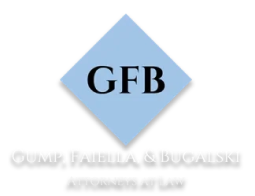On April 26, 2011, the Missouri Supreme Court, in the case Schmitz v. Great American Assurance Company, — (S.W.3d – 2011) (2011 W.L. 1565447), held that a trial court was not permitted to determine a reasonableness of an underlying judgment against an insured in an equitable garnishment proceeding when the underlying case was presented to the court.
In Schmitz the insurer argued that the equitable garnishment trial court had to apply the reasonableness test from the Gulf Insurance case, 936 S.W.2d at 815. The Gulf Insurance test, as held by the supreme court applies only to settlements under Section 537.065, and does not apply where an underlying bench trial, determines both liability and damages. The insurer argued that the trial lacked any semblance of an adversarial proceeding because the insured did not present a defense. The Schmitz court made clear what the insurer was ignoring that the insurer had had an opportunity to present a defense, but because it had declined to do so by denying coverage, it was not entitled a second bite at the apple. The court made clear that there is a difference between a settlement, and a bench trial where no defense was presented, because the trial court did not have to find liability or damages in favor of the plaintiff. Thus, the plaintiff risked the possibility that the court would find against him. To hold otherwise would force the plaintiff in a garnishment action to relitigate the entire case before the equitable garnishment court so the court in that proceeding could determine whether or not the judgment was reasonable. The Supreme Court noted that the insurers proposed application of the Gulf Insurance test would effectively allow all insurers “two bites of the apple” – once when the trial court determines liability and damages and once when the equitable garnishment court determines reasonableness. The Supreme Court held that this application of the Gulf Insurance test in the underlying proceeding was in error.
The Schmitz decision by the Supreme Court makes clear that insurance companies who refuse to honor an insurance contract to their insured, do not get to relitigate the reasonableness of the underlying judgment and therefore have their cake and eat it too. Instead, if the trial court in the proceeding in which the insurer refused to defend enters a judgment against them on liability and damages, the insurer will be bound by the judgment. It should be noted that the insurers’ position in the coverage case was unreasonable. The court noted that the insurer in coming up with its reasons for denial had ignored the insurance company’s own policy language. Sadly, this is too often the case in Missouri. Insurance companies often abandoned their insureds and deny coverage by misapplying the policy language or stretching or twisting its meaning. While this decision is favorable for insureds and strikes an appropriate balance between the insurer/insureds interest, it will likely have no detouring effect on insurers poor treatment by some insurers.
If you or your business have been denied coverage by an insurance company or issued a reservation of rights, you should retain expert legal advice. Gump & Faiella , attorneys at law have significant experince in injury and insurance claims including representing policyholders, named insureds and additional insureds in coverage and bad faith litigation against insurance companies. We have succefully obtain multipy million dollar recoveries in bad faith, failure to settle and failure to defend cases. We have have succefully resolved reservation of rights letters, and coverage denials through negotiation where possible and through litigation, trial and appeal. If you need legal help with an insurance company or your claim has been denied give us a call 1-888-262-2718 or email us at info@tgflaw.com
The post Supreme Court of Missouri Clarifies Reasonable Standard on Section 537.065 Judgments appeared first on Gump & Faiella, LLC | Missouri.

